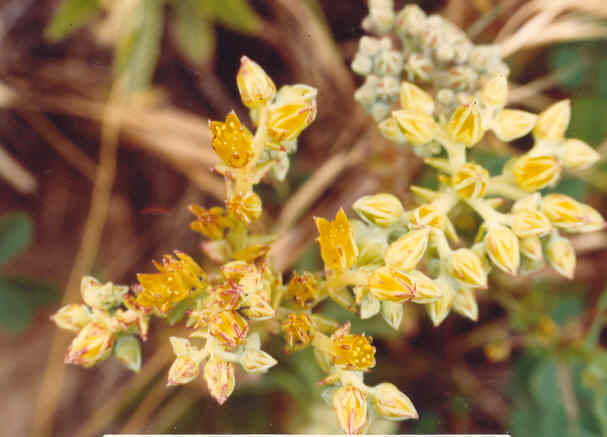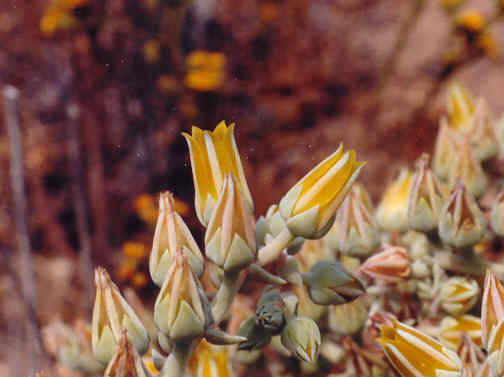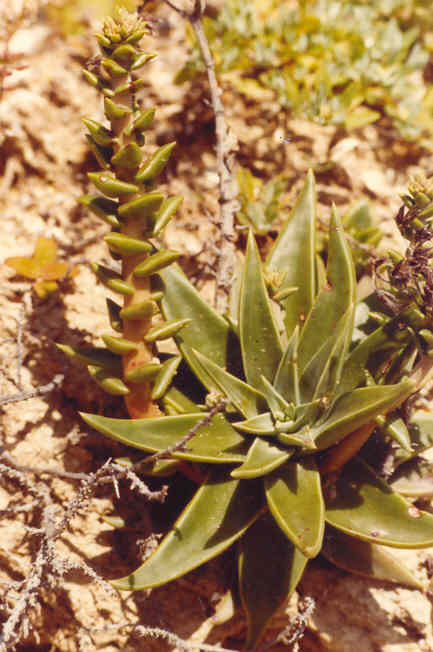
Dudleya lanceolata (Nutt.) Britton & Rose
 |
Dudleya lanceolata (Nutt.) Britton & Rose
Crassulaceae (Stone crop Family)NativeLive-foreverLance-leaved Dudleya |
April Photo
Plant Characteristics:
Perennial herb with short, simple caudex; rosette-lvs. pale green, +/-
glaucous, lanceolate, long-acuminate, 5-20 (-30) cm. long, 1-3 cm. wide; fl.
stems 2-6 dm. tall, fairly stout, +/- reddish; cauline lvs. lanceolate, cordate
or sagittate at base, 0.5-3 cm. long; cincinni several, 5-12 cm. long, many
fld.; stamens 10, borne on the corolla tube;
pedicels stout, 3-12 mm. long; calyx-lobes 5-parted, lance-ovate, 3-5 mm.
long; petals orange or pale green with red tinge, 10-15 mm. long; carpels 5.
Habitat:
Common on dry slopes and banks below 3500 ft.; Coastal Sage Scrub,
Chaparral; Santa Barbara and Kern cos. to n. L. Calif.
May-July.
Name:
Named for W.R. Dudley,
1849-1911, first head of the Botany
Dept. at Stanford Univ. (Dale 102).
Lanceolata means "lance-like," referring to the shape of
the leaves. (Dale 102).
General:
Common in the study area. Photographed
on the Castaway's bluffs, the North Star bluffs, and the bluffs between 23rd
Street and Delhi. (my comments),
D. saxosa was used for food by
the Cahuilla Indians, inhabitants of the Colorado Desert the San Bernardino and
San Jacinto Mountains. The leaves
were eaten raw and considered a delicacy (Clarke 122).
Delfina Cuero, a Kumeyaay or Southern Diegueno Indian, made the following
comment about Dudleya lanceolata in
her autobiography: "We ate the
leaves green and raw, not cooked." (Shipek
89). Perhaps
40 spp. of N. Am., often very variable and apparently hybridizing freely.
(Munz, Flora So. Calif. 383).
Text Ref:
Hickman, Ed. 528; Munz, Flora So.
Calif. 383; Roberts 21.
Photo Ref:
Feb 1 83 # 21,22,23; April 1 84 # 8; May-June 85 # 8.
Identity: by R. De Ruff,
confirmed by F. Roberts.
First Found: February 1983.
Computer Ref: Plant Data 237.
Have flower specimen.
Last edit 5/6/05.
 |
 |